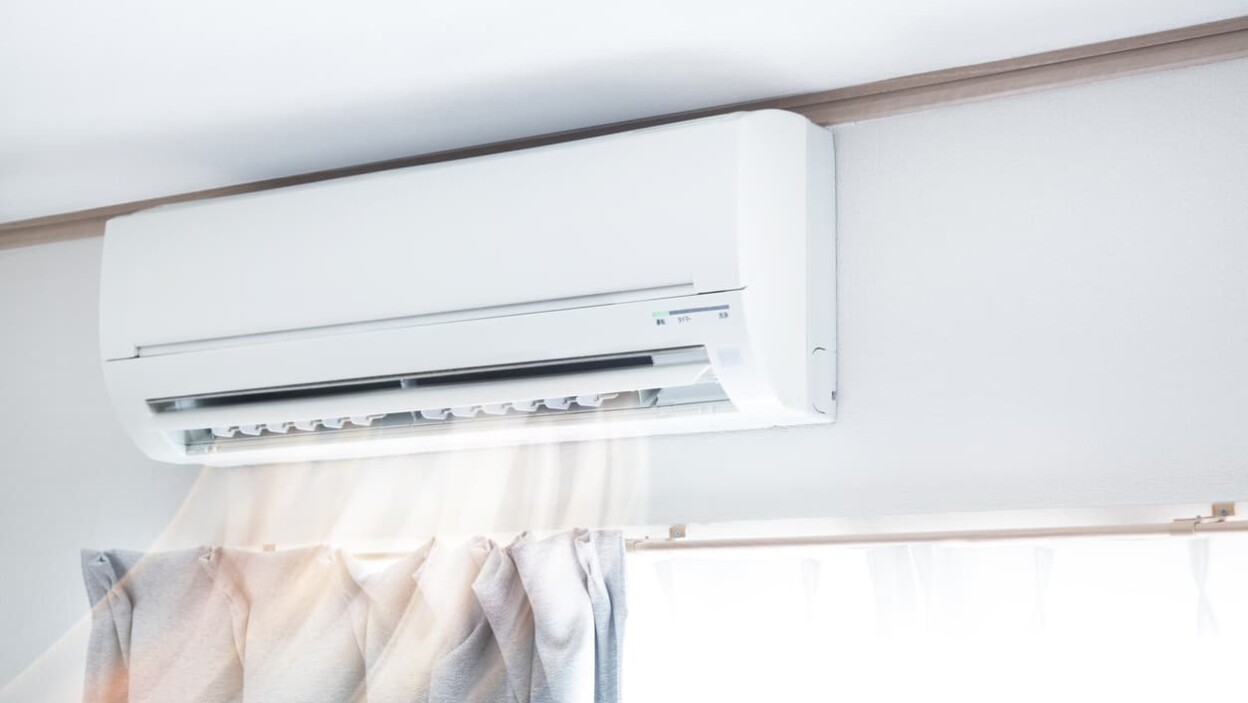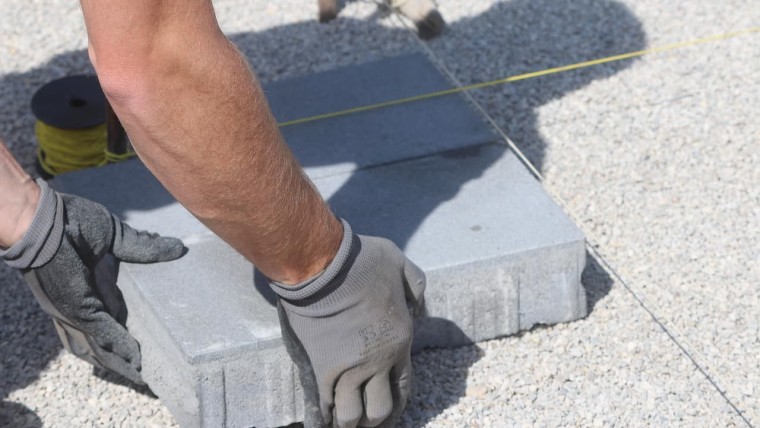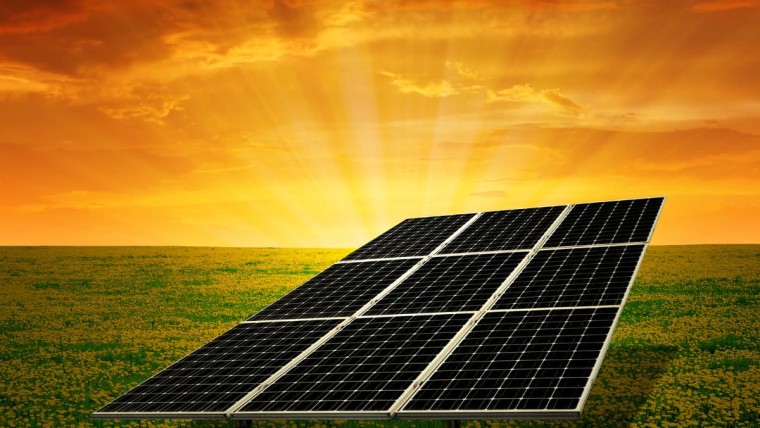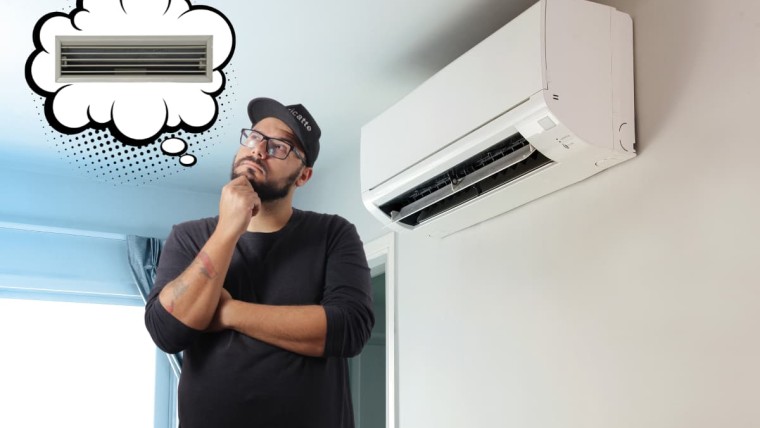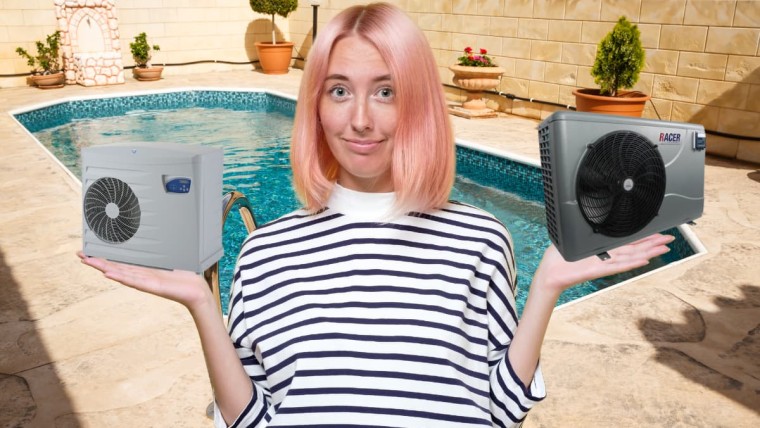You have seen that reversible air conditioners are generally much cheaper than heat pumps and you have the impression that it is the same thing, or that it can produce the same effect? Before you decide, you need to understand the difference between these two systems which are similar in principle.
A reversible air-conditioning is a machine equipped with a refrigerating circuit able to take the calories of the hot interior air and to extract them via condenser on the outside air. By reversing the cycle via a 4-way valve, it becomes an air-to-air heat pump capable of taking the calories from the outside air and returning them to the inside air.
Valid for France + Belgium => heat pump quote request
The difference between the heat pump and the reversible air conditioning
The heat pump is generally understood to be any machine with a refrigeration circuit and capable of pumping calories from any type of external source such as air, water or soil. While the reversible air conditioning represents implicitly a type of machine equipped with a refrigerating circuit which cools the interior air via evaporator, and returns the calories via condenser on the external air.
The reversible air conditioning implies an exchange between two air sources. It is capable of cooling indoor air and heating outdoor air in summer. While in winter it is possible to reverse its cycle to do the opposite and finally obtain a kind of heating.
This reversible air conditioning system is therefore very practical and generally inexpensive to heat and cool relatively small spaces with acceptable efficiency.
In summary, the reversible air conditioner is an air-to-air heat pump that can reverse its cycle to make heat in winter and mid-season. A heat pump is understood in a more general sense and can also capture or redistribute calories on water, and why not also reverse its cycle to make cold or more often cooling.
Heat pump vs reversible air conditioning: who has the best performance?
Most of the time, it can be seen that the transfer of energy via water is more efficient because the thermal capacity of this medium is 4 times greater than that of air. Therefore, if you have in mind to produce heat via a reversible air-conditioning system, you must know that naturally the system will be less efficient than the classic air-water heat pump which is often installed for heating purposes. And even less efficient than a geothermal heat pump.
Indeed, in winter and thus in heating mode, the reversible air conditioning will pump calories in the outside air. Until then, there is no difference with the classic air-water heat pump.
However thereafter it redistributes the calories via an air condenser, unlike a PAC Air Water which redistributes via a water condenser. This is where the difference in final performance and therefore COP. Given the much better (thermal) capacity of water to accept energy, the COP of an air-water heat pump is better than that of an air-air heat pump or reversible air conditioning with a reverse cycle.
Therefore, when winter arrives, if you really want to have heating via a reversible air conditioning, it is better to do it for premises with punctual and not too voluminous needs. Otherwise the bill may be a bit high, although still advantageous compared to a purely electric heating.
Advantages and disadvantages of the reversible air conditioner to make heating?
Let's imagine that we still want to opt for a reversible air conditioner to heat us this winter, here are the advantages and disadvantages that we can expect in this case
| Benefits | Disadvantages |
| Reversible air conditioning is generally cheaper that the air-water heat pump | The COP or coefficient of performance will be lower |
| The outdoor unit of a reversible air conditioner is less cumbersome than that of an Air-Water heat pump | The comfort is less without where the heating of the interior room is done by convection of the heated air leaving the condenser. This is in contrast to an air-to-water heat pump, which allows the use of water radiators or underfloor heating, providing a much more comfortable feeling of heat distribution. In addition, there may be an air flow due to the fan's impulse. |
| No risk of condensation in summerThis is because the condensate will be evacuated. Whereas with an air-water heat pump whose cycle is reversed, the temperature of the cold water must be regulated so that it is not too cold and does not create catastrophic condensation in the interior. | There is a fan noise for pulsating hot air in the room. While the air-water heat pump pulses hot water into the pipes of the hydraulic network via a pump located in the technical room, thus more discreet. |
Which system should I choose between a heat pump and a reversible air conditioning system?
The choice depends on several criteria:
- Your sensitivity to ecology: Reversible air conditioning consumes more electricity to heat the same volume, because the COP of these machines is generally lower, and the method of heating by air implies more losses.
- Your heating or cooling needs: If you need to heat a small amount of space, or just a room or two, then a reversible air conditioner may be a good choice because it is easier to install and less expensive. The savings compared to an air-to-water heat pump is probably more than what you will spend in electricity bills due to the power consumption of your unit. If you also need heating and hot water, then an air-to-water heat pump that can take care of everything will be more attractive.
- Your search for comfort: If the room in question is a living room in which you spend a lot of time, then you are probably looking for maximum comfort. However, the transmission of heat through the air does not really offer the best comfort, so the air-to-water heat pump will be preferable. If however the room is an office in which you do not spend much time, then a reversible air conditioning will be more economical to purchase and largely sufficient.

Julien G.
Juliena mechanical engineering graduate and specialist in climate engineering since 2009, has become a writer specializing in renewable energies, with expertise in heat pumps and photovoltaic solar panels for individual housing.
See all articles by this author
